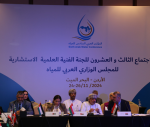You are here
Summitry in summary
Feb 19,2017 - Last updated at Feb 19,2017
When Rudyard Kipling wrote the “Ballad of East and West”, little did he imagine that his opening line “Oh, East is East, and West is West, and never the twain shall meet” would become virtually the mantra of every xenophobe advocating isolationism and parochialism.
As often happens, people who quote this line have not read beyond the snippet that supports their view, because the third and fourth lines read: “But there is neither East nor West, Border, nor Breed, nor Birth/When two strong men stand face to face, tho’ they come from the ends of the earth!”
Kipling acknowledged that geographic points cannot be brought together, but he argued that differences of background matter little when honest people get together to address issues of common interest.
One such meeting took place in 1959, when King Hussein made his first visit to the US to meet president Dwight Eisenhower.
The two men could not have been more different.
Eisenhower, at 69, was president of the world’s most powerful and prosperous nation, while the King, at 24, had survived many assassination attempts and was head of a small nation that was vulnerable in every way.
After the meeting, Eisenhower, whose extensive military and political career taught him, if nothing else, how to judge character, is reported to have said to secretary of state John Foster Dulles: “We can do business with this young man.”
This meeting made Jordan a friend that the US would work hard to support and protect over the years, and Jordan benefitted greatly from this friendship, not only with the US but with all Western countries.
True, Jordan has not succeeded in becoming economically solvent for many reasons, but it provides for its people a better quality of life than many countries with considerably greater resources.
This friendship was fostered and strengthened over the years largely through regular summit meetings with heads of states in the region and beyond, a tradition which His Majesty King Abdullah has wisely kept up with even greater energy.
Sceptics ask whether summit meetings are worth the trouble and cost when modern technology allows people to exchange information securely and in real time.
With Jordan preparing to host the World Economic Forum in May, this question needs to be addressed. But the fact is that information is not all.
Eisenhower in 1959 was not short of information about Jordan; but as Kipling pointed out, barriers disappear when earnest people stand face to face.
Meetings have a quality that cannot be judged solely by the logic of a procurement officer who knows the price of everything and the value of nothing.
Summit meetings have been a vital tool of Jordan’s diplomacy over the years, and this tool is well worth keeping because the meeting of two personalities is like the contact of two chemical substances: if there is any reaction, both are transformed, often to the better.












